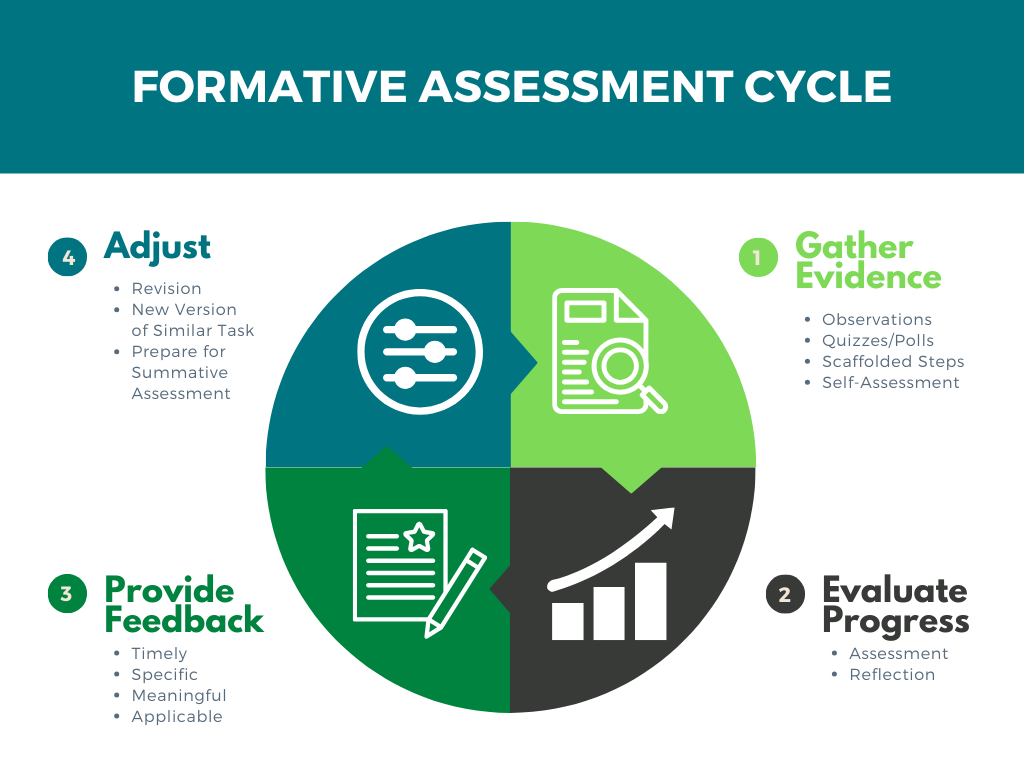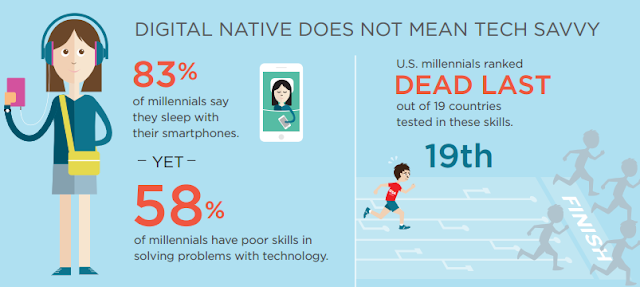Formative assessment is often discussed in K-12 settings as a standard and expected part of curriculum delivery. In higher education, however, conversations about formative assessment have been somewhat more elusive. Traditionally, we rely on the high-stakes midterm, project, paper, final model which leaves little room for formative assessment that can foster growth. Using formative assessments … Continue reading Formative Assessment and Success-Oriented Feedback
Setting the Stage for Learning
Make FREE images at Canva.com! By Toni DiMella Over the past three years, we have spent a lot of time in education talking about how online and face-to-face classes are different. The tools we use to engage students, how we facilitate active learning, and the overall course structure often vary based on the delivery method. … Continue reading Setting the Stage for Learning
QM What?
Make or use FREE images like the one above at Canva.com! By Toni DiMella You have probably heard the staff of the Center for Academic Innovation and Faculty Support (CAIFS) refer to QM in meetings, webinars, and trainings. Over the past year, USC Upstate has been transitioning from using the Online Course Quality Review Rubric … Continue reading QM What?
Back to a Better Normal
By Toni DiMella Those who work in higher ed are “planners.” We start making the Spring schedule two weeks into the Fall semester. The final exam schedule for a semester is posted on the first day of classes. We can tell you on August 13 what we’ll be doing on December 2—by the hour. The … Continue reading Back to a Better Normal
Connecting the Dots for a Clearer Picture
Image adapted from the artwork of gapingvoid, (Source) By Toni DiMella Higher education is a key factor in creating economic mobility as the majority of “good jobs”, as defined by the Georgetown University Center on Education and the Workforce, require at least a bachelor’s degree (Carnevale et al., 2017; Carnevale et al., 2018). This economic … Continue reading Connecting the Dots for a Clearer Picture
The Myth of the Digital Native
Image from "The Myths of the Digital Native" by C. Flathery (2015) By Toni DiMella We’ve all heard the claims. Today’s students are tech-savvy with a short attention span and need to experience content in multiple ways, often simultaneously. Those born after 1984 have never known the world without technology. They grew up on Nintendo, … Continue reading The Myth of the Digital Native






